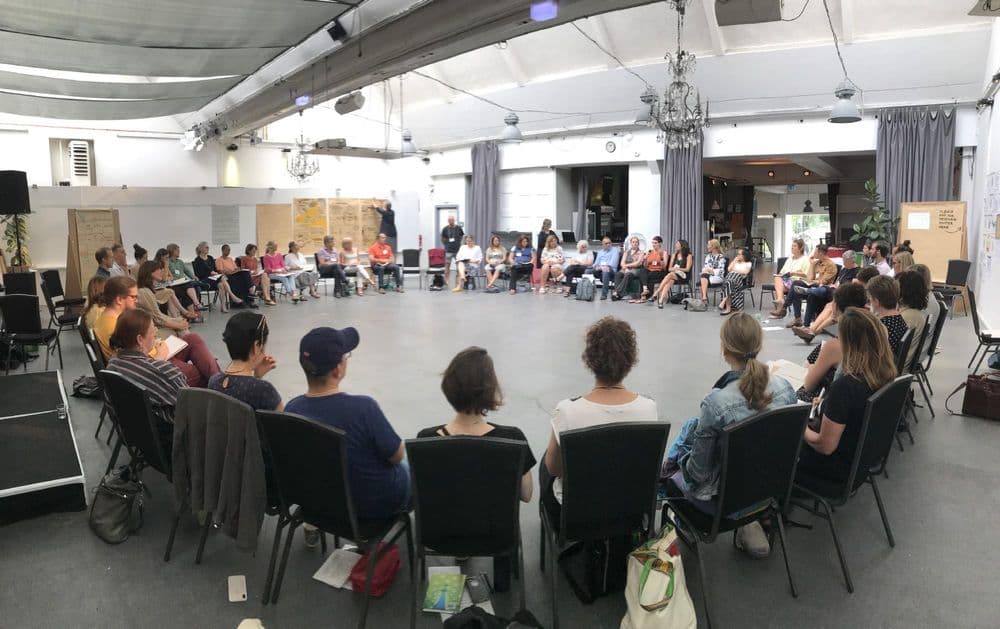Last June 2019, we introduced Social Presencing Theater (SPT) as a research methodology at the Presencing Institute’s Social Field Research Summer School in Berlin. Social Presencing Theater is comprised of a series of embodied practices that focus on bringing forth the knowing of the body — both as an individual and as a collective (social body) — which is then used to inform social systems transformation. During this gathering, we introduced a variation (both at the conceptual framework and embodied practice levels) on the SPT practice known as Stuck to a community of PhD students, university professors, social artists and change makers. This constituted an important innovation in terms of how social groups contemplate and act upon social reality as it is. This blog piece describes what we did and what we learned about deep systems change in offering this experimental variation.
The Heart of the Practice
Stuck is a practice that relies on people’s ability to stay with discomfort. When our natural tendencies are to turn away from discomfort or painful situations, to cover them up and ease the pain, this practice invites us to stay with. In terms of social reality, we can notice how deeply painful some of our national and global challenges are. I recently attended an International Literary Fair at a historical site in Brazil and met with climate activists, who were genuinely speaking of how important it is to collectively act towards making a difference for the climate. They said “this is our time, we must act now. We cannot afford to step back.” The urgency of their call, while confronted with the most recent policies carried out by the current Brazilian government (i.e., claiming back indigenous land and communicating an “open support” to agribusiness, which includes continued deforestation), is a desperate cry in the midst of a complex social-environmental entanglement.
Read the full article here on our Field of the Future blog.
